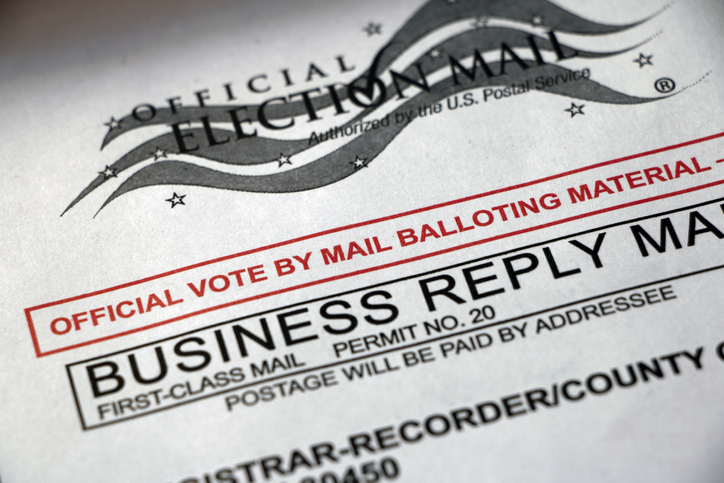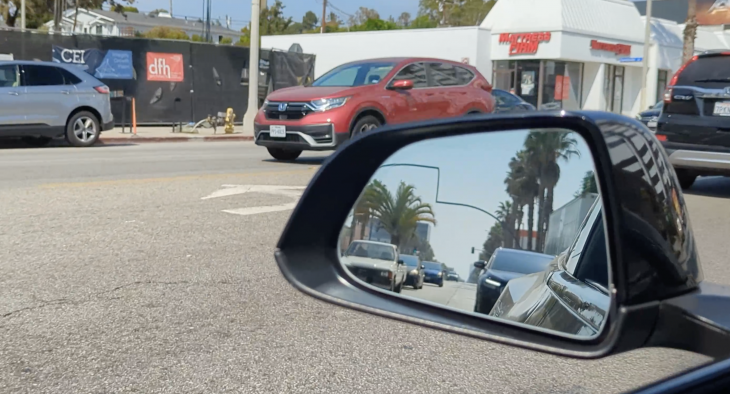A new policy brief by the UCLA Center for Health Policy Research shows that California adults who in are good health with little psychological distress are more likely to consistently vote in local, state and national elections than those with physical or psychological health issues.
The brief, which uses data from the center’s 2017 and 2018 California Health Interview Survey, also provides evidence that state residents who vote tend to live in more advantaged communities than those who don’t. The authors note that these disparities in voting may make it less likely that the needs of less healthy and more disadvantaged Californians are being heard and addressed.
The percentage of adults who reported always voting was highest among those who said they were in excellent or very good health (40.9%) and who had experienced no psychological distress in the past year (40.1%), the authors found. Among those in fair or poor health, 32.7% said they always voted, while only 23.3% of respondents who had experienced psychological distress voted consistently.
“We found differences in voting by health and neighborhood factors that suggest that people who vote are healthier, have better access to health care and live in more cohesive and safer neighborhoods than those who don’t vote,” said Susan Babey, lead author of the study and a senior research scientist at the center. “These differences in civic activities such as voting could contribute to policies that fail to meet the health needs of Californians who are less healthy, face barriers in access to health care and live in disadvantaged communities, which may in turn lead to greater inequities in health.”
While the study looked at adult Californians who are U.S. citizens and likely eligible to vote, the findings indicate that approximately 400,000 of these residents believe they are ineligible. Factors such as age, race and ethnicity, education, and income were shown to play a role in this belief, according to the study’s authors.
Latinos, individuals in Generation X (ages 38 to 53), those with less than a high school education and those in the lowest income group (0% to 99% of the federal poverty level) were most likely to report that not being eligible was the main reason they were not registered to vote. Among those who said they weren’t registered because they didn’t know how or where to register, the percentage was highest for Asian citizens (11.7%) and those with limited English proficiency (14.2%).
“Many California adults offered reasons for not being registered, such as incorrectly believing they are not eligible to vote or not knowing how to register, that could be addressed with targeted voter engagement efforts,” Babey said. “Importantly, these reasons were more likely to be offered by groups that already experience health inequities, including low-income adults, those with limited English proficiency, Latinos and Asians.”
Other key findings include:
- Those who live in areas that have high levels of social cohesion — defined as a sense of connectedness and unity among neighbors — reported higher rates of always voting (49.5%) than those in areas with low cohesion (27.5%).
- Respondents who perceived their neighborhoods as safe all of the time were most likely to report that they always vote (43%) while those who felt their neighborhoods were mostly unsafe were least likely (23.2%).
- Nearly 9 in 10 U.S.-born and naturalized citizens in California reported that they are registered to vote. Among those registered, 44% said they always vote in presidential, state and local elections; 17% said they frequently vote; 34% said they vote sometimes; and 5% said they never vote.
“We recommend a combination of strategies to increase participation in voting and other activities,” said Joelle Wolstein, co-author of the study and a research scientist at the center. “These include providing civics education and preregistration opportunities in settings such as high schools and supporting integrated voter-engagement activities, both during and
By Elaiza Torralba/UCLA. Original post: https://newsroom.ucla.edu/releases/connection-between-voting-and-health

























